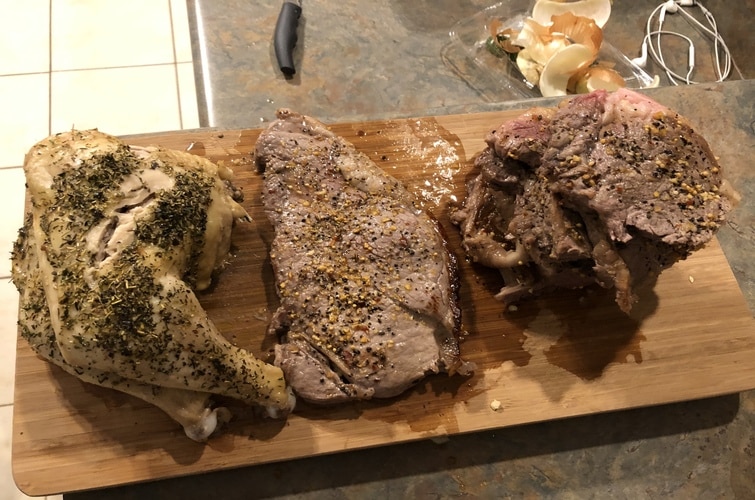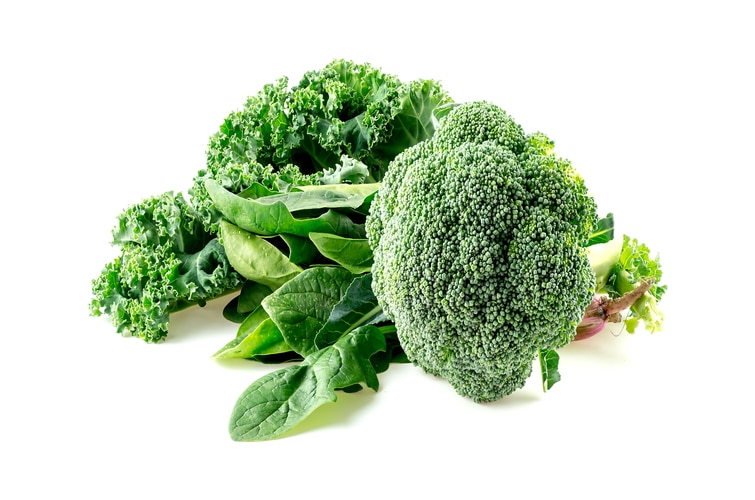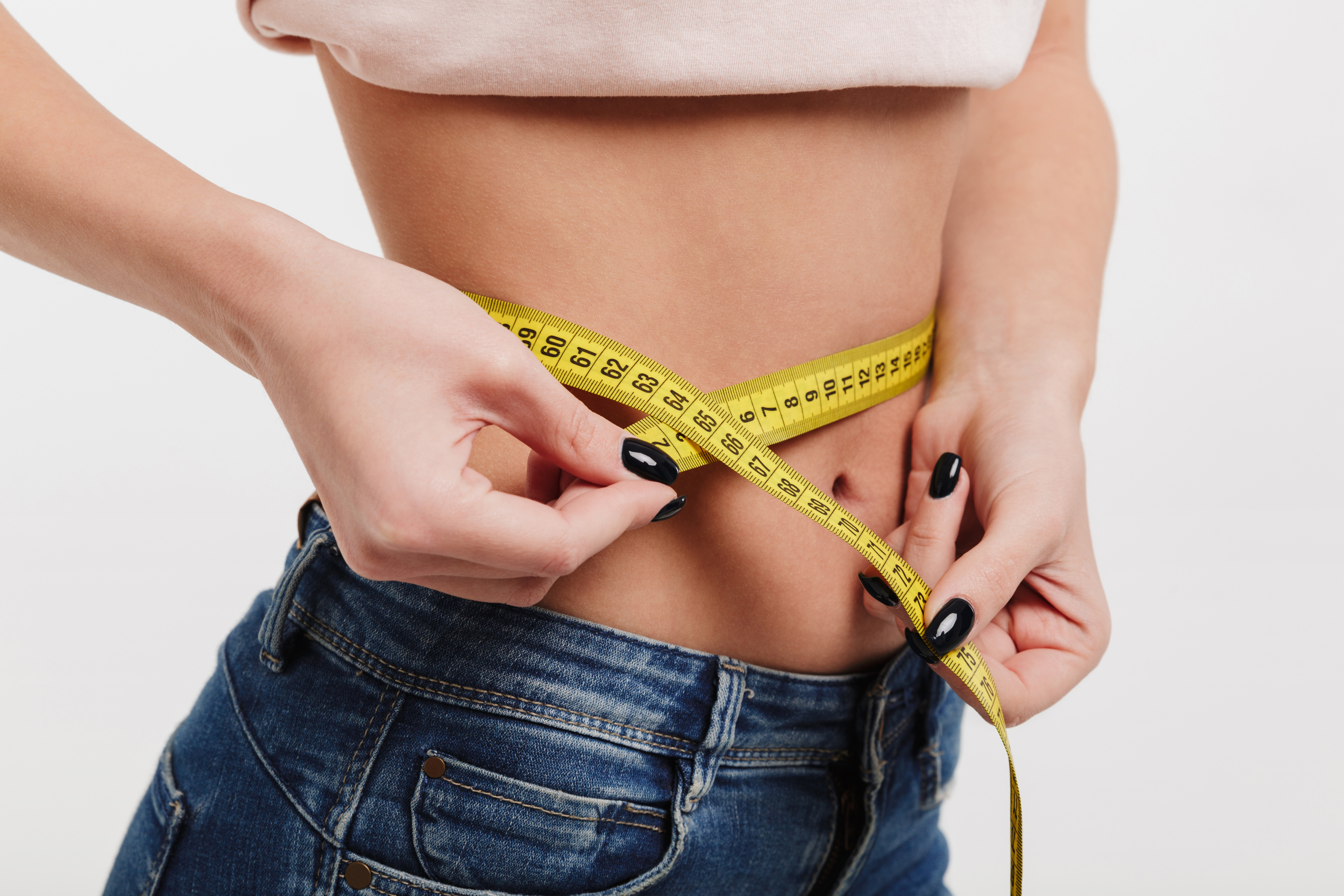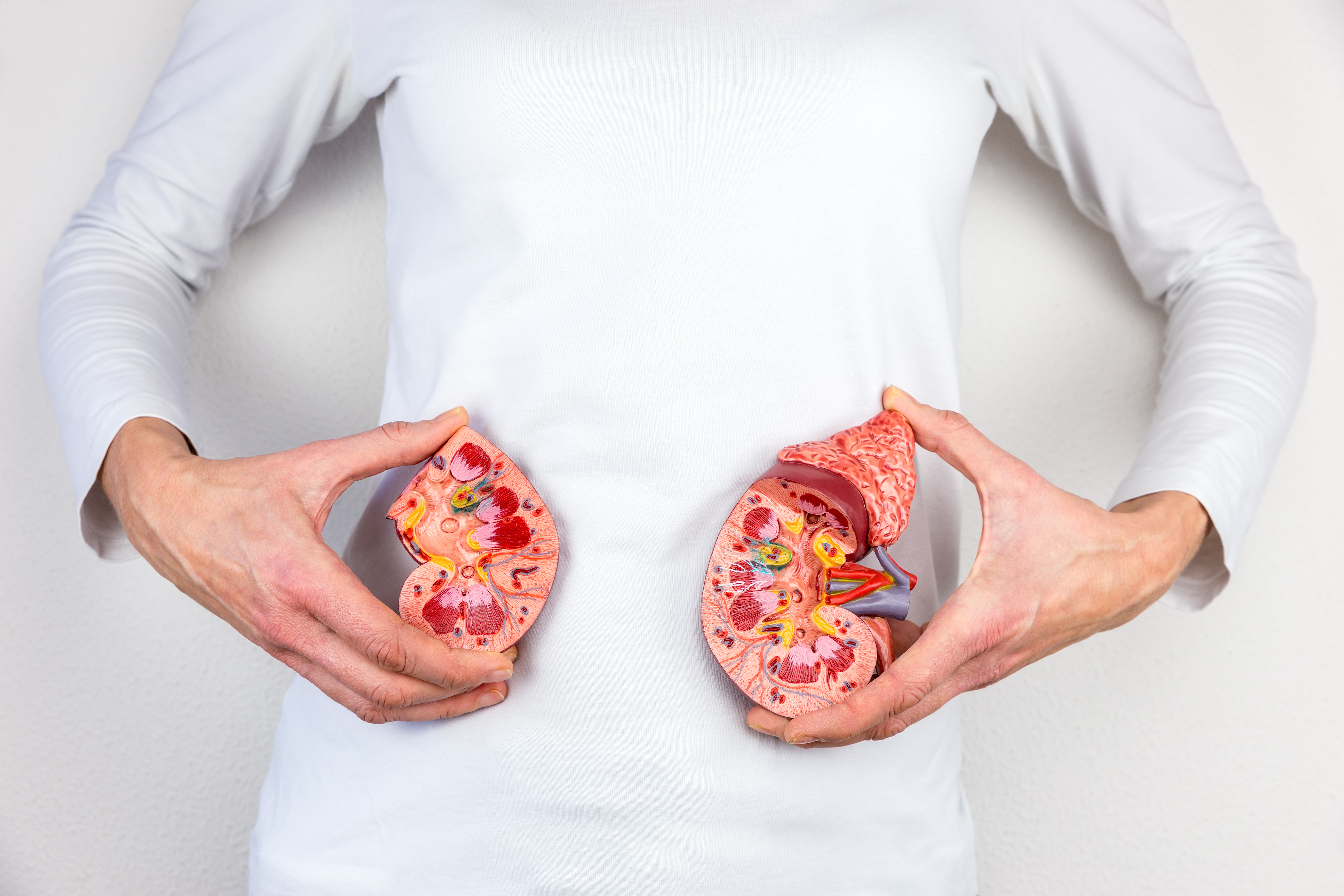The Carnivore Diet, also known as the Zero Carb Diet, is a new fad that’s recently gained popularity among people looking for quick and effective weight loss. The Carnivore Diet is extremely restrictive.
It allows you to eat only meat; any plants or other foods are strictly off-limits. Some people find it difficult to follow this diet, however, because of the social obligations attached to eating meat in most Western cultures.
Carnivore Dieters need to be persistent and strong-willed when adopting this way of eating. It can be challenging at times but it can also be rewarding once you see the results.
If you’ve just started following the Carnivore Diet and haven’t noticed any changes in your body weight yet, read on to find out why you’re not losing weight and how you could adjust your diet accordingly.
Contents
Don’t Be Confused –
Know the Basics of a Carnivore Diet
The Carnivore Diet has been called the Ketogenic Diet for carnivores. Like keto, the carnivore diet involves eating mostly fat and protein with very little to no carbohydrates.
While keto is used to treat conditions like epilepsy and diabetes, carnivore is used to help people with their weight loss quickly. Keto is used as a sustainable long-term diet, while carnivore is used only to jumpstart weight loss.
Carnivore dieters eat only meat but only certain types of meat. They consume mostly red meat, poultry, and fish but avoid all dairy, legumes, and plant-based proteins like soy. The goal is to get as many nutrients as possible from animal sources.
You’re not eating enough fat
If you consume too little fat, you won’t be able to get the right amount of calories that you need to sustain yourself, and this may be the reason why you're not losing any weight on a carnivore diet. Fat is essential to good health, and it also promotes weight loss.
Fat gives you energy, keeps your skin and hair healthy, and it keeps you feeling full. When you’re not eating enough fat, you might feel lethargic, moody, and irritable. You might also experience headaches, joint pain, and cravings for sugar or other carbohydrates.
You’re not eating enough protein
If you eat too little protein, you may not be able to sustain your weight loss efforts or feel satisfied with your diet. Protein is essential for weight loss, as well as for building muscle and maintaining your health in general.
When you don’t consume enough protein, you may feel weak and tired, and you may experience difficulty building muscle. You may also feel lethargic and have trouble concentrating.
Your body’s adapting to the Carnivore Diet
If you’ve been on the Carnivore Diet for a few weeks and haven’t noticed any weight loss, you may be experiencing “carb flu,” a metabolic transition that occurs when you’re adapting to a low-carb diet.
When you first start following the Carnivore Diet, your body is still running on the carbs that are stored in your system, but once those are used up, your body will begin to burn fat and you will lose fat for energy.
This process can take a few weeks, and it’s important to be patient. The first few weeks on any diet are difficult, especially if you are transitioning from a high-carb diet to a low-carb or no-carb diet.
It can take some time for your body to adjust to this change. During this adjustment period, you may experience symptoms such as fatigue, headaches, and cravings. While these symptoms are not ideal, they are temporary and can be expected as you transition to a low-carb diet.

You’re consuming too many carbs from non-meat sources
When you’re following the Carnivore Diet, you’ll want to avoid consuming too many carbs. Some people assume that non-meat sources of carbs, like dairy and eggs, don’t count towards their carb intake.
This is false, however, since the body processes these foods as carbohydrates. Dairy contains more carbohydrates than it does protein. If you’re consuming too many carbs from non-meat sources, you’ll notice a decrease in your weight loss progress and you may also experience carb cravings.
One way you can avoid consuming too many carbs is to use a carb counter chart when you are meal-prepping. You can also research what specific foods contain carbohydrates and try to avoid them.
You’re consuming too much protein
If you consume too much protein, you may end up depleting your body’s amino acid stores. Amino acids are essential for health and play a role in everything from immunity to digestion.
Once these stores are depleted, your body can’t function at its highest capacity. This can lead to a decreased ability to burn fat and a decreased ability to build muscle.
When you consume too much protein, you might notice that your strength has decreased. You will experience digestive issues, you feel tired, you crave sugar, or you have trouble falling asleep.
You might also notice that your hair and nails are less strong than usual. The good news is that consuming too much protein is reversible, which means that your body will get back on track once you reduce your protein intake.
You have a thyroid condition or are underweight
If you have a thyroid condition and follow the Carnivore Diet, you may notice that you aren’t losing weight. The Carnivore Diet is incredibly effective for weight loss, if you’re not losing weight while following the diet, it may be due to an underactive thyroid.
If you have a thyroid condition that causes your thyroid to underproduce hormones, you might notice that you aren’t losing weight as quickly as you would like to on the Carnivore Diet. This doesn’t mean that the diet isn’t effective, but that you need to adjust the number of calories that you consume.
If you have a thyroid condition, you should consult with your doctor before attempting to follow the Carnivore Diet. Your doctor can help you determine if the diet is safe for you. He or she can also prescribe medication that can help you with your weight loss more quickly.
You Didn't Fully Transition to the Carnivore Diet
If you’ve recently transitioned to the Carnivore Diet, you may be experiencing what’s called “keto flu,” a metabolic transition that occurs when you’ve stopped consuming carbs but haven’t yet adapted to burning fat for energy.
Keto flu can cause a variety of symptoms, including fatigue, nausea, headaches, and stomach aches. This transition period can last anywhere from a few days to a few weeks, depending on how quickly you can transition to burning fat for energy instead of carbs.
When transitioning to the Carnivore Diet, you may want to start out consuming high-fat meals a couple of times a week before gradually increasing the amount of fat you’re consuming until you’re getting the majority of your calories from fat. This can help reduce symptoms of keto flu.
You Don't Have Enough Nutritional Diversity in Your Diet
If you have a very limited range of foods that you eat on the Carnivore Diet, you may not be getting all of the nutrients that your body needs to function at its best.
Nutrients are essential for regulating your metabolism and hormone production, both of which are important for weight loss. When you follow the Carnivore Diet, you must try to incorporate a wide range of foods.
This will help you to get the most nutritional value out of your diet. It can be difficult to incorporate a wide range of foods into the Carnivore Diet, but it can be done. One way to incorporate more variety into your diet is to rotate the types of meat that you consume.
Things You Should Remember in Carnivore Diet
Are you a carnivore and not losing weight? Are you following a carnivore diet and not seeing results in your body weight? Are you trying to lose weight on the Carnivore Diet and struggling?
The Carnivore Diet is one of the most talked-about new eating trends, as well as one of the more challenging ones. It’s also one that’s very effective in helping people lose weight quickly.
However, it isn’t easy. If you’re not losing weight on this diet and still have a lot of body fat, it may be because you aren’t sticking with just red meat or you aren’t cutting back on carbs enough. Here are some tips to make your Carnivore Diet even more effective!
Eat Only Meat – No Fat and Very Little Protein, Too
The major difference between a carnivore diet and a ketogenic diet is that carnivore dieters eat only meat, but not fat. Keto dieters consume enough fat to put them in a state of ketosis, which is the goal of both diets.
On a carnivore diet, dieters eat only lean meat: not bacon, not ribs, not fatty cuts of steak. They also avoid all dairy, legumes, and even most nuts, which are high in protein. Those who follow the carnivore diet are eating mostly protein and very few carbohydrates, like those found in nuts and legumes.
This is where the similarities with the keto diet end. A carnivore dieter is avoiding fat in their diet while a keto dieter is eating lots of it. Carnivores do need some protein to maintain muscle mass, but they don’t need any fat.
Decide Which Fats You’ll Consume
If you are using the Carnivore Diet for weight loss, you’re probably eating a lot of red meat. This is a high-protein, high-fat food, but not all fats are created equal. A carnivore dieter should avoid all saturated fat, like that found in red meat.
While this type of fat can help you maintain muscle mass, it can also raise your cholesterol. While saturated fat is unhealthy for you, monounsaturated fat, like what’s found in avocados, is good for you.
It helps lower your cholesterol. This type of fat can be found in other foods too, like most nuts, olive oil, and fatty fish.
Have Plenty of Leafy Greens and Broccoli
If you’re not losing weight on a carnivore diet, maybe you aren’t getting enough nutrients. This can be a problem for carnivores because most vitamins and minerals (except for iron, which is abundant in red meat) are found in plants and not meat.
Fatty fish like salmon, avocados, and even eggs provide some vitamins, but carnivores should consume lots of cruciferous vegetables like broccoli, as well as leafy greens like lettuce and spinach. Carnivores should eat these vegetables every day to ensure they are getting the vitamins and minerals they need to be healthy.
If you aren’t getting enough nutrients on the carnivore diet, you aren’t going to lose body weight. If you aren’t seeing results on the carnivore diet, you aren’t eating vegetables.

Reduce Carb Intake Even More
If you’re not losing weight on Carnivore Diet, one of the first things you should do is cut back on your carb intake even more, beyond just reducing your carb intake to zero.
If you’ve already reduced your carb intake to zero, try reducing it even more. For instance, add in a couple of extra days of Intermittent Fasting, or cut back a little more on your carb intake each day.
If you haven’t reduced your carb intake to zero, you may want to add in a few low-carb, high-fat snacks each day, such as a spoonful of peanut butter with a low-carb protein bar, some nuts, or even some full-fat, high-quality dairy.
Don’t Be Confused by “Fake” Carnivore Diets
There are many versions of the carnivore diet out there. And while they have their merits, they’re not true carnivore diets. Some people, for instance, allow themselves some vegetables.
Others allow low-glycemic fruits (though not many). Still, others allow dairy and/or legumes. This may be the reason why some of them weight gain. Then some are more true carnivores, eating only red meat, eggs, and dairy.
If you’re trying to lose weight on the Carnivore Diet, you should be eating like a true carnivore. The only foods you should eat are meat, fish, eggs, and dairy. Some people may even want to take it one step further, eating only muscle meat, not organ meat.
Tips for Those Trying to Lose Weight on a Carnivore Diet
Drink plenty of water.
The Carnivore Diet is very low in fiber, which can cause constipation. Make sure you consume plenty of water to make up for the lack of fiber in your diet.
Eat enough calories.
The Carnivore Diet is very low in calories, meaning you’re likely not eating enough. Make sure you’re consuming enough calories to support your health. Most people need about 2,000 calories per day to stay healthy. If you’re trying to lose weight, you may need to boost your caloric intake even more.
Eat enough protein.
The Carnivore Diet is very high in protein, meaning you’re likely eating too much protein. Make sure you’re eating enough protein to support your health.
Add in some resistance training
The Carnivore Diet is very low in carbohydrates and protein, which is great for fat loss. However, it also means that you aren’t building muscle very quickly.
Don’t stress too much. Stress can trigger your body to hold onto fat, so don’t obsess over whether or not you’re losing weight. Just focus on making consistent, healthy choices.

Conclusion
The Carnivore diet weight loss can be a quick and effective way for the weight loss journey. However, it’s important to make sure that you’re following the diet properly to maximize your results.
When you aren’t losing weight while following the Carnivore Diet, it could be because you aren’t eating enough fat, protein, or carbs, you’re consuming too much protein, or you’re not getting enough nutritional diversity in your diet. Fortunately, these issues are easily correctable.
Be sure to reduce your carb intake, even more, eat enough and boost your caloric intake, eat enough protein, and do some resistance training. And don’t forget to drink plenty of water. With these tips in mind, you should be able to lose even more weight on the Carnivore Diet.






